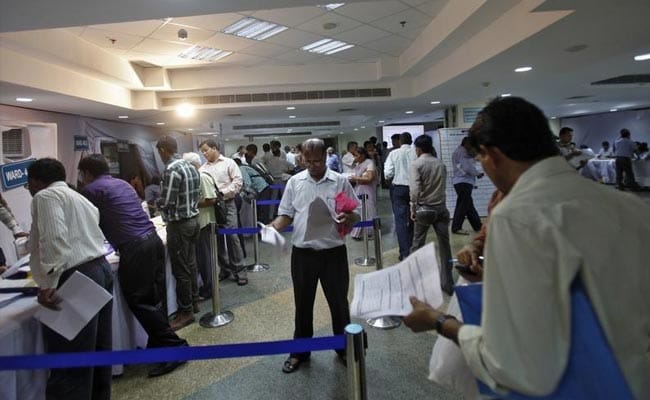
he Union Cabinet chaired by Prime Minister Narendra Modi approved important proposals relating to modifications in the 7th pay commission recommendations on pay and pensionary benefits including those of defence forces. The benefit of the modifications will be available with effect from January 1, 2016, the date of implementation of 7th pay commission recommendations. The Cabinet had in June last year approved implementation of the 7th pay commission’s recommendations with an additional financial outgo of Rs. 84,933 crore for 2016-17 (including arrears for 2 months of 2015-16). With the increase approved by the Cabinet, the annual pension bill alone of the central government is likely to be Rs. 1,76,071 crore.
Here are highlights of some of the important decisions of the Cabinet:
The Cabinet approved modifications in the recommendations of the 7th pay commission relating to the method of revision of pension of pre-2016 pensioners and family pensioners based on suggestions made by the committee chaired by Secretary (Pensions).
The modified formulation of pension revision approved by the Cabinet will entail an additional benefit to the pensioners and an additional expenditure of approximately Rs. 5,031 crore for 2016-17 over and above the expenditure already incurred in revision of pension as per the second formulation based on fitment factor.
It will benefit over 55 lakh pre-2016 civil and defence pensioners and family pensioners. In order to provide the more beneficial option to the pensioners, the Cabinet has accepted the recommendations of the Committee, which has suggested revision of pension based on information contained in the Pension Payment Order (PPO) issued to every pensioner.
The Cabinet also approved the retention of percentage-based regime of disability pension implemented after sixth pay commission, which the 7th pay commission had recommended to be replaced by a slab-based system. The decision which will benefit existing and future defence pensioners would entail an additional expenditure of approximately Rs. 130 crore per annum.
The Cabinet has approved further modifications in the pay structure and the three Pay Matrices, i.e. Civil, Defence and Military Nursing Service (MNS).
The 7th pay commission had recommended a compact Pay Matrix for Defence Forces personnel keeping in view the number of levels, age and retirement profiles of the service personnel. The Ministry of Defence raised the issue that the compact nature of the Defence Pay Matrix may lead to stagnation for JCOs or junior commissioned officers in Defence Forces and proposed that the Defence Pay Matrix be extended to 40 stages. The Cabinet decision to extend the Defence Pay Matrix will benefit the junior commissioned officers who can continue in service without facing any stagnation till their retirement age of 57 years.
Index of Rationalisation or IOR for Levels 12 A (Lt. Col. and equivalent) and 13 (Colonel and equivalent) in the Defence Pay Matrix and Level 13 (Director and equivalent) in the Civil Pay Matrix has been increased from 2.57 to 2.67: Variable IOR ranging from 2.57 to 2.81 has been applied by the 7th CPC to arrive at Minimum Pay in each Level on the premise that with enhancement of Levels from Pay Band 1 to 2, 2 to 3 and onwards, the role, responsibility and accountability increases at each step in the hierarchy.
This principle has not been applied in respect of Levels 12A (Lt. Col. And equivalent), 13 (Colonel and equivalent) and 13A (Brigadier and equivalent) of Defence Pay Matrix and Level 13 (Director and equivalent) of the Civil Pay Matrix on the ground that there was a disproportionate increase in entry pay at the level pertaining to GP 8700 in the 6ht pay commission regime. The IOR for Level 13A (Brigadier and equivalent) in the Defence Pay Matrix has already been revised upwards with the approval of the Cabinet earlier. In view of the request from Ministry of Defence for raising the IOR for Levels 12 A and 13 of the Defence Pay Matrix and requests from others, the IOR for these levels has been revised upwards to ensure uniformity of approach in determining the IOR.
To ensure against reduction in pay, benefit of pay protection in the form of Personal Pay was earlier extended to officers when posted on deputation under Central Staffing Scheme (CSS) with the approval of Cabinet. The benefit will also be available to officers coming on Central Deputation on posts not covered under the CSS.
[“source-ndtv”]



